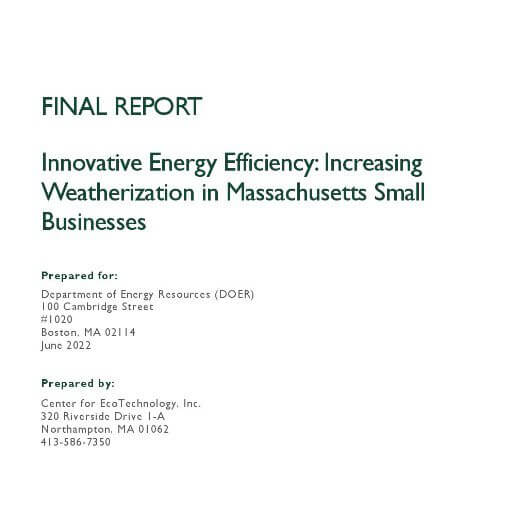Utility-Led Acceleration of Residential Efficiency & Electrification Retrofits: Introducing Tariffed On-Bill Financing
Explore the groundbreaking TOB (Tariffed On-Bill Financing) study in Ipswich, Massachusetts by Ashley Muspratt and Jon Blair. This innovative approach removes credit checks and debt concerns for property owners.
Enjoy state-of-the-art home improvements with a modest monthly tariff tied to your electric meter, aligning repayment with energy savings. Unlike traditional financing, TOB decouples capital improvements from individuals, making energy-efficient upgrades accessible to all, regardless of credit history or future relocation plans. Stay ahead in sustainable living with this insightful report.
Electric Ipswich and the Center of Ecotechnology introducing TOB.
The town of Ipswich in Massachusetts is pioneering a new approach to support homeowners in transitioning to clean energy. In collaboration with the Center for EcoTechnology, the Ipswich Electric Light Department has introduced a pilot program that provides upfront financing for energy upgrades. Unlike traditional loans or grants, this program utilizes a unique model called tariff-on-bill financing.
Homeowners, such as Mark Fitzgerald, who needed to replace his old oil furnace, can have the majority of upfront costs covered by the local utility. Fitzgerald, for instance, had his $22,000 furnace replacement financed by the utility, and homeowners repay the principal amount over time at a rate lower than their energy savings.
We need to find creative ways to make these investments happen.
Ashley Muspratt, president of the Center for EcoTechnology for the Boston Globe
The tariffed-on-bill financing model makes clean energy improvements more accessible and affordable for homeowners, addressing the limitations of existing state financing programs like Mass Save. These programs often exclude customers not connected to large utilities, whereas Ipswich homeowners who are customers of the municipal utility can now benefit from energy efficiency incentives and reduce their reliance on fossil fuels.
A Feasibility Study of Tariffed On-Bill Financing in Ipswich, Massachusetts
Ashley Muspratt1 and Jon Blair2
1Center for EcoTechnology, 2Ipswich Electric Light Department
Imagine your utility told you they wanted to invest in state-of-the-art technology for your home. No taking on debt, no credit checks, no matter if you’re a renter, and no matter if you plan to move soon.
Your obligation? Paying a monthly tariff that sums to no more than the savings in energy costs afforded by the new measures. The tariff, tied to your electric meter, would extend for as long as it takes for the utility to recover its investment, and if you move, would simply transfer to the next occupant.
This is TOB, or tariffed on-bill financing. Unlike traditional on-bill financing, where a utility makes a loan to a property owner, thus requiring adequate credit history, willingness to take on debt, etc., TOB decouples capital improvements from the individual resident or business.
It is a financing mechanism that enables upgrading properties with measures that reduce operating costs and improve the comfort, health, and environmental footprint of the building, all with little or no upfront capital investment from the ratepayer.
This report is co-authored by CET President Ashley Muspratt, and Jon Blair, General Manager of Ipswich Electric Light Department.
Download Report


